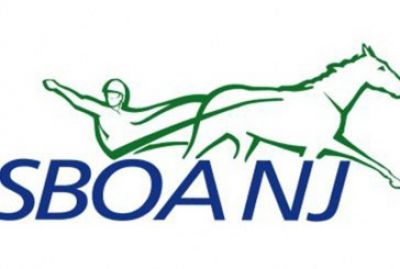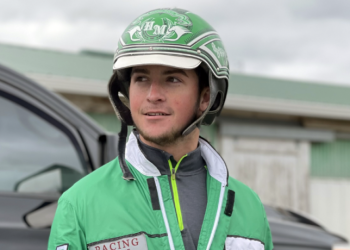They say the only thing about common sense in harness racing is that unfortunately, the application of it is not very common.
That saying rings true in every sense of the word as information comes to light about a group of high-profile horsemen in North America facing historical charges relating to the application of phenylbutazone or as it is ubiquitously known, ‘Bute’.
Phenylbutazone is a non-steroidal anti-inflammatory drug commonly used in racehorses for therapeutic purposes. It must be administered by a licensed veterinarian.
Harnesslink has learned that in the coming days, a group comprising Marcus Melander, Nifty Norman, Brett Pelling, Kelvin Harrison, Kevin McDermott and Jeff Cullipher will be charged with administering phenylbutazone within the pre-race withholding period as per the rules of the New Jersey Racing Commission (NJRC).
The charges date back to the 2020 racing season when, at the onset of the calendar year, the New Jersey Administrative Code read that a phenylbutazone was “not to be administered within the 24 hours before post time for the race in which the horse is entered.”
The aforementioned group were taken aback when a number of horses in their care received positive tests for the application of the product after a sudden rule change came into effect which shifted the withholding time for Bute from 24 hours to 48 hours.
According to the evidence that was ultimately put before a federal judge, no communication was made by the New Jersey Racing Commission informing horseman, the Standardbred Breeders and Owners Association of New Jersey (SBOANJ), or licensed veterinarians of such change.
Even in the days preceding the positive tests, the publicly available information on the New Jersey Racing Commission website continued to communicate that the withholding period for the application of the product was 24 hours.
The rules in question, N.J.A.C. 13:71-23.8(f)1 and 2, prescribe a 24-hour period in the online version of the document, which is listed as up-to-date as of Dec. 4, 2023. No amendments to the section are registered since 2014.
At the appeal hearing before the judge, there was no evidence available from the NJRC to prove it had taken any formal steps to communicate with industry stakeholders about the change. The judge therefore ruled in favor of the group, which was represented by the SBOANJ, granting the appeal. The ruling was then sent back to the NJRC, which has the power to overrule the decision.
Harnesslink understands that the commissioner, Judy Nason, decided to uphold the charges as originally delivered with members of the group being sentenced to both a monetary fine and disqualification pertaining to each of the overages.

It seems incredulous that the charges would be upheld when the administrative body responsible for rules and regulations continues even to this day to publicly promote 24 hours as the withholding period for the treatment of Bute.
In the first of this two-part series, we speak with some of the affected horsemen and a veterinarian responsible to try and shed some light on the situation.
Expat New Zealander and New Jersey horseman Kelvin Harrison was one of the first to learn of the rules breach after being notified by his veterinarian.
“The Bute application rule in the state of New Jersey has been a withholding period of 24 hours for as long as I can remember, and I have been here involved in North American harness racing since 1978,” he said.
“We came back racing after the pandemic and I won a couple of races right off the hop and before long I was informed that a couple of my horses had thrown positives for Bute.
“The rule had been changed from 24 hours to 48 hours, however, nobody I could find including my veterinarian was aware of the rules having changed. Each individual racing commission has its own rules and we have raced in New York under the 48-hour withholding period for many years and never had a problem. Everyone is aware of the rule and adheres to it without a hitch.
“When I went in for the hearing with the New Jersey Racing Commission, written right on their website in regards to Bute and its application was that there was a 24-hour withholding period. It hadn’t been updated to reflect the change and we are talking at least a few weeks after the positives were thrown.

“When I went into the hearing they asked me if I had anything to say. I said I had nothing to say except to show them the rule that was clearly written on their website.
“They were very embarrassed because they were under instruction and had a job to do, but they responded like they hadn’t seen anything. When I went to wrap up they asked me again if I had anything to say. I simply stated that after seeing and hearing evidence that the communication around the rule change had been non-existent and that they should let their conscience be their guide. It didn’t matter.”
Harrison’s vet, Dr. Robert Bende, a longstanding practitioner in New Jersey, says how the ruling is being upheld is something that he struggles to understand.
“I had administered Bute specifically to two of Kelvin Harrison’s horses one morning, following the rule that had been in place for many years of 24 hours prior to racing,” said Dr Bende. “So what they did was that they changed the rules without notifying us, while also failing to update their own communication channels which we rely upon to provide accurate information. Even some days and weeks after, the old rule of 24 hours withholding was still being communicated as in effect on their own website.”
“We argued that we abided by the rules, looked at the website and therefore improper notifications and communication by the NJRC is what led to the positives these trainers were being charged with. It was very unfair. Their response to our argument was that they didn’t care.”
Bende confirmed that it was the responsibility of licensed veterinarians to inform themselves of any changes to medical applications in each equine code, but he believes the chain of command was not only not adhered to, but that it should be improved for better outcomes for those plying their trade.
“It’s our responsibility to keep up with the time changes about withholding periods for certain applications before race days, he said. “How we are expected to do that is to regularly check for information on the respective racing commission websites for each state.
“They usually update the information as it becomes available, but that never happened in this instance and yet the ruling for the positives has been upheld.
“The ideal situation given the racing commission has all the vets on record, is that they communicate directly with us about any changes. They can send us a direct line of communication informing us of any changes which is paramount given we are the only ones capable of administering any medical products to the animals.
“The drug companies can inform us of any changes to medications the day they come out and do so regularly. I would think it would be easy for the New Jersey Racing Commission to notify us directly, and then it becomes our responsibility. If we were communicated with effectively around a fundamental rule change, then I would happily take responsibility for any errors that may have occurred.
“In this case, the wrong information was still publicly available, and we had only loosely learned of any change because of rumors’ or hearsay coming from veterinarians working in the other equine code. It’s a terrible situation and for the NJRC to be enforcing this seems incredibly unjust.”
Brett Pelling, who is coming off the high of one of his career seasons in the sport thanks in part to the deeds of superstar three-year-old pacer, Confederate, is another caught up in the scandal.
He too finds the black-and-white nature of the incident something scarcely believable.

“The bottom line is I probably have raced over 7,000 horses at The Meadowlands, and we don’t do any treatments ourselves,” said Pelling. “We just have a standard practice in the barn where all racehorses who are three years old and older are given Bute as per the 24-hour withholding period which was within the rules.
“My understanding was that notice was put out to the Thoroughbred vets and not the Standardbred vets. It left those of us charged dumbfounded when it was something that could and should have been cleared up immediately, and I think it’s why the SBOA of New Jersey took on the case and chose to represent us as a group given it was very black and white. Yet here we are today left holding the baby with positives that we don’t feel responsible for.
“The Racing Commission here is a law unto itself and able to adjudicate in any way they see fit. It is my understanding that Judy Nason, it is her job to uphold the laws and how they are applied, and she has chosen basically to ignore a judge ruling in our favor on the basis we were notified of a change when she and the New Jersey Racing Commission can’t provide any evidence to show that we were.
“We are talking about high-profile trainers which is not a good image for the sport. Purse money is involved for owners who we need as one of the most important elements of the sport. Initially, they would view it as our negligence, but it’s hard to be negligent when you are following the rules and the information that is provided to you.”
The NJRC has not responded to requests for an interview, but it’s fair to assume, given the appeal being ruled in favor of the horseman, that there are some mitigating circumstances and a lack of evidence from the NRJC to justify the original charges.
“We appealed it as a group and the SBOA of New Jersey actually paid to represent all of us because it was so ludicrous,” said Harrison. “All these things take time, but we went to court and won the appeal, not that any of us expected to lose given how black and white the case appeared to be.
“Now it refers back to the New Jersey Racing Commission and Judy Nason who overturned the ruling stating it was our responsibility to find out.
“Supposedly in the next few days, it’s going to be announced and we are going to have to take the charges. The hardest pill to swallow is not the time or the money, but the fact that you have to lay it out on your record in every state that you have these convictions”.
“The amazing thing is that none of the group charged has had a Bute positive since, nor had anyone in the group had a Bute positive for 10 years prior to being charged. It’s not like anyone is pushing the envelope to do this, we can’t even apply the product ourselves and are reliant on our veterinarians being up to speed with the latest information regarding withholding periods. If they aren’t notified, as licensed medical professionals, then what are we meant to do?”
Bende agreed with those sentiments.
“It is alarming, and it’s one of those deals where the Racing Commission has the final say. Even if you appeal it and a judge and jury find you innocent, it can make no difference to the NJRC,” he said. “I have no reason and can find no logic as to why they upheld the rules instead of making a judgement given their own failings in the chain of command in regards to communication of the rule changes.”
Pelling, who has held a training license in North America since 1989 after shifting from New Zealand feels the NJRC are hanging the group out to dry at a time the industry can ill afford more bad press having dealt with mainstream exposure from the federal law suits which recently aired on 60 minutes.

“We are not the bad guys, we are just working in our profession and trying to make a living. I am glad I am not young, if I was a 30-year-old guy and had these thoughts I would not be a happy person. It needs to change.
“The business is shrinking and the real damage is not just to the professional reputations of those being charged, but the industry as a whole. We can’t afford to be creating more mainstream media attention in regards to drugs in the current climate, and yet the Racing Commission is choosing to print its own bad press for a matter that they can and should assume some responsibility for.”
Harnesslink understands the penalty for each trainer will likely be based around a 20-day suspension and $1,000 fine for each positive test.
As alluded to by Harrison earlier, the stigma and legal work that follows charges of this nature is much more debilitating given the paperwork involved informing racing jurisdictions in the future of the charges.
Bende considers himself fortunate that his relationship with Harrison has and will continue to stand the test of time despite the dynamic being tested in the public sphere.
“Positives like this have huge ramifications for everyone involved,” he said emphatically. “What happens in a particular case like this— because I have been working with Kelvin Harrison for years, I took him through the situation in lay terms and argued how anyone could be found at fault to which he agreed.
“What can happen in other instances is that if you get an owner or trainer who doesn’t know you, they blame the vet right away for the positive and fire us. Those can be the consequences of stuff like this, losing lifelong clients and income which is vital to us making a living. And you would be hard-pressed to find many vets willing to compromise that.
“The rules here in New Jersey put the liability on the trainer’s back, not the vets. They found the easiest way to make somebody responsible is the interpretation being ‘trainer responsibility’. I have a hard time with that because while they inform us of the medication they would like administered, you shouldn’t be punished for doing something in good faith like we have.”
Despite the charges likely to be fought further by the affected group, Pelling holds grave concern for the future of the industry given the treatment he and a number of his associates find themselves facing.
“We are trainers and the bottom line is there is a the trainer responsibility rule. Those horses are in our care and custody and it all falls on us,” he said. “But this is not the only situation with the Racing Commission both here in New Jersey and other states where it was taken to administrative law and a judge ruled in our favor.
“They asked the Racing Commission where the notification(s), which couldn’t be produced, so the judge ruled in our favor. That ruling goes back to the Racing Commission and they choose to uphold the charges.
“If they want to get into it, one of the big problems they have here now is that we have so many positives that are obviously contamination positives. All these human drugs that we have no control over are coming through at levels that are so minute there is no other explanation for it to be anything else. Yet we have no ability to apply common sense.”
Another of the affected parties, another ex-pat New Zealander, Nifty Norman, had the following statement to make.
“There is absolutely no evidence to show that anybody was notified,” he said. “It’s wrong and why we are all prepared to fight it. If you are guilty, you just take it on the chin, but we aren’t and refuse to accept the finding,” said Norman.
“Historically they have sent out notice when there is a dramatic change such as this and nobody seems to give a shit.
“The horse I have been charged for is owned by a bunch of respected owners and it’s a blemish on not only myself, but them too. They don’t understand it — trying to explain it to an owner who doesn’t understand the ins and outs of it is tough, especially when you are being presumed guilty.”

Harnesslink has made enquiries with the administrations and people responsible for defending the decision to uphold the charges and will follow up in the coming days with their comments.
by Brad Reid, for Harnesslink

 USA
USA Canada
Canada Australia
Australia New Zealand
New Zealand Europe
Europe UK / IRE
UK / IRE



